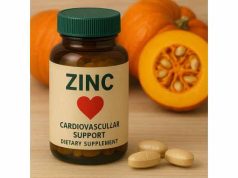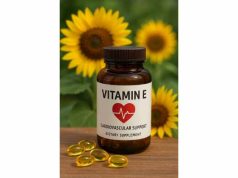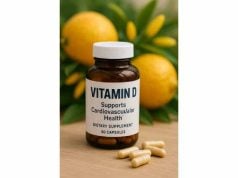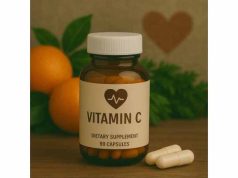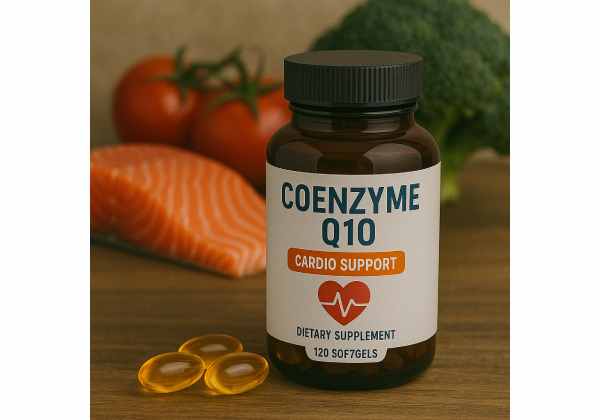
Coenzyme Q10 (CoQ10) has become a popular supplement for people looking to boost cardiovascular function and lessen the impacts of numerous heart-related conditions. As a vitamin-like substance naturally produced in the body, CoQ10 plays a pivotal role in cellular energy production and has been linked to improving overall heart health, reducing oxidative stress, and supporting vascular function. Whether you want to preserve your existing cardiac well-being or address specific concerns related to blood pressure, cholesterol levels, or heart muscle performance, exploring how CoQ10 works can provide significant insights. Read on to learn about CoQ10 for heart health and how it can be integrated into a preventive regimen.
Table of Contents
- Fundamental Profile and Composition
- Biochemical Functionality: The Mechanisms of CoQ10
- Validated Cardiac Advantages and Supportive Research
- Usage Guidelines, Dosage, and Possible Cautions
- Frequently Asked Questions: Quick Insights
- References and Sources
Fundamental Profile and Composition
Coenzyme Q10, also referred to as ubiquinone, is a lipid-soluble compound found in nearly every cell of the human body. Although the body synthesizes CoQ10 naturally, production tends to decline as we age. Low levels of CoQ10 in tissues—especially the heart muscle—have spurred interest in supplementation to address deficiencies and promote cardiovascular health.
Origins and Basic Structure
- Biochemical Nature: CoQ10 consists of a benzoquinone ring attached to a tail of isoprenoid units. This unique structure allows it to move within the lipid membranes of cells, particularly in mitochondria.
- Classification: Known as a coenzyme due to its role as a catalyst in metabolic reactions, CoQ10’s ubiquinone form readily switches to its reduced version, ubiquinol, under cellular conditions. Both forms play an integral part in energy production.
Where It’s Found
Humans can produce CoQ10 internally via several enzymatic steps requiring vitamins (e.g., B vitamins) and trace minerals. Beyond endogenous synthesis, small dietary amounts come from sources such as:
- Organ Meats (liver, kidney)
- Fatty Fish (sardines, mackerel)
- Nuts and Seeds
- Whole Grains
While it’s possible to derive some CoQ10 from diet, typical daily intake often lags behind therapeutic levels used in clinical research, prompting many to use supplements.
Historical Perspective and Discovery
Scientists began studying CoQ10 in the mid-20th century upon isolating it from beef heart mitochondria. Initial interest revolved around its potent antioxidant and energy-related properties. Over time, more attention focused on the link between CoQ10 deficiencies and various conditions, ranging from heart disease to neurodegenerative disorders. By the 1970s, supplement forms of CoQ10 were introduced, eventually gaining traction in cardiology as a supportive therapy.
Distinguishing CoQ10 from Other Supplements
Though CoQ10 often appears alongside other antioxidants (e.g., vitamin E, alpha-lipoic acid), it stands out for its dual function:
- Mitochondrial Energy Production: Supports ATP generation, crucial for high-energy organs like the heart.
- Potent Antioxidant Effects: Protects cell membranes and proteins from oxidative damage.
Its synergy with certain micronutrients, such as selenium, can amplify these effects, offering more pronounced cardiovascular protection.
Variations: Ubiquinone vs. Ubiquinol
CoQ10 supplements exist primarily in two forms:
- Ubiquinone: The oxidized form. Traditional CoQ10 supplements often use this variant.
- Ubiquinol: The reduced form, known for potentially higher bioavailability in some individuals, particularly older adults or those with absorption issues.
Opinions differ on which form is best, with many experts suggesting ubiquinol may be slightly more efficient. However, factors like dosage, brand quality, and individual metabolism can outweigh minor differences between the two variants.
Role in Heart-Focused Supplementation
The high energy demands of cardiac tissue make consistent CoQ10 availability imperative. Clinical observations highlight low CoQ10 levels in patients with advanced heart diseases, reinforcing the substance’s critical status for circulatory maintenance. As a result, CoQ10 for cardiovascular health is frequently recommended to those with heart failure or individuals using statin medications (which can lower CoQ10 levels).
Shelf Stability and Absorption Issues
CoQ10, being fat-soluble, often benefits from concurrent dietary fats for optimal absorption. Formulations that include emulsifiers or deliver CoQ10 in oil-based capsules may significantly enhance its uptake. With proper storage away from heat, moisture, and direct sunlight, high-quality CoQ10 supplements maintain stability over a typical shelf life of one to two years.
Integrating CoQ10 into Comprehensive Heart Wellness
While CoQ10 is not a magic bullet, it plays a remarkable role in an overall plan that includes a balanced diet, regular exercise, and stress management. Its capacity to support cellular energy and protect against oxidative damage dovetails neatly with the fundamental needs of cardiovascular health. Understanding its composition and how it differs from other supplements sets the stage for grasping the deeper mechanisms that make it so valuable for heart function.
Biochemical Functionality: The Mechanisms of CoQ10
To truly appreciate how CoQ10 supports heart health, one must examine its underlying biochemical processes. Although widely recognized for its antioxidant role, CoQ10’s most vital contribution may lie in sustaining mitochondrial efficacy—critical for cells like cardiomyocytes that demand a constant influx of energy.
Mitochondrial Energy Production
Mitochondria, often called the powerhouses of cells, orchestrate the conversion of nutrients into adenosine triphosphate (ATP). Within the mitochondrial inner membrane, CoQ10 acts as an electron carrier in the electron transport chain (ETC). Specifically, it:
- Shuttles Electrons: CoQ10 transitions between ubiquinone (oxidized) and ubiquinol (reduced) forms, transferring electrons from complexes I and II to complex III.
- Generates ATP: As electrons move along the ETC, a proton gradient forms, driving ATP synthesis.
- Fuels Cardiac Muscle: Since the heart continuously contracts, it relies heavily on ATP. Adequate CoQ10 ensures the ETC runs smoothly, promoting optimal energy output in heart cells.
Antioxidant Defense
Oxidative stress arises when free radicals outpace antioxidant defenses, damaging proteins, lipids, and DNA. CoQ10 mitigates this threat by:
- Direct Scavenging: The reduced form, ubiquinol, neutralizes reactive oxygen species (ROS) before they inflict harm.
- Regenerating Other Antioxidants: CoQ10 helps recycle vitamin E, another lipid-soluble antioxidant, boosting overall protection in cell membranes.
- Curbing Lipid Peroxidation: This process, where fats undergo oxidative degradation, can degrade cell membranes or low-density lipoprotein (LDL) particles. By halting lipid peroxidation, CoQ10 lessens the onset of atherosclerosis.
Stabilizing Cell Membranes
In addition to combating oxidative stress, CoQ10 fosters membrane stability in various cell components, such as:
- Mitochondrial Membranes: Ensuring fluidity and structural integrity, CoQ10 contributes to efficient ETC function and reduces leaks that generate excess free radicals.
- Plasma Membranes: A more stable outer membrane can improve intercellular signaling and nutrient transport, benefiting tissues like heart muscle that rely on precise calcium ion regulation for contractions.
Anti-Inflammatory Potential
Chronic, low-grade inflammation underlies the pathology of many cardiovascular conditions, including heart failure and coronary artery disease. Emerging research links CoQ10 to immunomodulatory effects that:
- Down-Regulate Pro-Inflammatory Cytokines: By influencing pathways like nuclear factor kappa B (NF-κB), CoQ10 can reduce cytokine release (e.g., TNF-α, IL-6) that exacerbate vascular damage.
- Promote Cellular Repair: Adequate CoQ10 may support healing processes in blood vessel linings, limiting plaque formation or arrhythmic triggers.
Enhancing Endothelial Function
The endothelium lines blood vessels and regulates essential processes such as vasodilation. Nitric oxide (NO) production, a critical factor for healthy blood pressure, can be compromised by oxidative stress. Through its antioxidant effects, CoQ10 helps maintain higher NO availability and thus:
- Improves Vascular Tone: Better NO levels translate to more flexible arteries and potentially lower blood pressure.
- Prevents Platelet Aggregation: NO also curbs excessive platelet clumping, helping stave off thrombosis.
- Reduces Arterial Stiffness: Minimizing oxidative damage preserves elastic fibers in the arterial walls, which can support normal circulation.
Interplay with Statin Medications
Cholesterol-lowering drugs known as statins inhibit the enzyme HMG-CoA reductase. While beneficial for lipid management, the same pathway is used in part for CoQ10 synthesis. Thus, statin therapy often reduces endogenous CoQ10 production. Supplementing CoQ10:
- Restores Depleted Levels: Particularly relevant in individuals on long-term statins who may experience muscle aches or diminished heart muscle efficiency.
- Aids in Myopathy Prevention: Some preliminary evidence suggests CoQ10 supplementation can alleviate statin-induced myopathy, although results vary.
- Supports Overall Energy: By replenishing CoQ10, patients can potentially maintain better mitochondrial function despite statin-induced disruptions.
Role in Cardiomyocyte Protection
Cardiomyocytes, the cells responsible for heart contractions, must handle mechanical stress and high metabolic demands. CoQ10’s presence in these cells:
- Guards Against Ischemic Damage: During low oxygen conditions (e.g., ischemia), robust antioxidant defenses from CoQ10 may limit tissue necrosis.
- Modulates Calcium Balance: Proper calcium cycling ensures a steady, rhythmic contraction. Oxidative stress can disrupt this balance, causing arrhythmias—an outcome CoQ10 helps reduce.
- Facilitates Quick Recovery: Some studies hint that CoQ10 may speed up post-exertion or post-surgical cardiac recovery by boosting cellular energy restoration.
Gene Regulation Insights
Beyond immediate biochemical roles, CoQ10 has been implicated in modulating gene expression. Certain research points to it influencing genes tied to:
- Inflammatory Response: Adjusting transcription factors that code for pro- or anti-inflammatory cytokines.
- Oxidative Stress Management: Upping expression of antioxidant enzymes, such as superoxide dismutase (SOD) or catalase, enhancing defense capabilities.
- Metabolic Control: Possibly impacting genes regulating lipid and glucose metabolism, though this remains an evolving area of study.
Summation of Mechanisms
CoQ10’s multipronged impact on cell metabolism, antioxidant capacity, and inflammatory regulation underscores why it has garnered attention for heart health. By bolstering mitochondrial ATP production while shielding cells from oxidative injury, it supports the essential functions of cardiac tissue and vascular systems alike. This synergy of improved energy supply and robust cellular defense can significantly influence an individual’s overall cardiovascular performance, especially as age, illness, or medication use lowers intrinsic CoQ10 levels.
Validated Cardiac Advantages and Supportive Research
Scientific evidence strongly suggests that CoQ10 benefits a spectrum of cardiovascular conditions, from mild elevated blood pressure to chronic heart failure. Across clinical trials, observational studies, and lab findings, consistent themes emerge: enhanced heart muscle efficiency, decreased oxidative damage, and possible protective effects against disease progression.
Hypertension (High Blood Pressure)
Hypertension remains one of the most prevalent risk factors for heart disease. Several double-blind, placebo-controlled studies link CoQ10 supplementation with modest reductions in both systolic and diastolic blood pressure:
- Mechanism: Improved endothelial function via greater nitric oxide availability, alongside lower oxidative stress.
- Magnitude of Effect: Average reductions range from 3–11 mmHg systolic and 2–8 mmHg diastolic. While not a replacement for antihypertensive medications, CoQ10 can complement standard therapy.
- Long-Term Outlook: Over periods ranging from 8 to 12 weeks, participants often experience more stable blood pressure control when combining CoQ10 with lifestyle modifications like diet and exercise.
Heart Failure and Cardiomyopathies
Low CoQ10 levels have been documented in patients with congestive heart failure (CHF) and specific cardiomyopathies. Since these conditions strain the heart’s ability to pump blood effectively, boosting energy at the cellular level may help:
- Improved Ejection Fraction: Some trials report modest but meaningful increases in left ventricular ejection fraction, a measure of how effectively the heart pumps blood.
- Reduced Hospitalizations: A few large-scale trials, including the Q-Symbio study, found that CoQ10 supplementation lowered the risk of adverse cardiac events and hospital admissions in patients with moderate to severe heart failure.
- Enhanced Exercise Tolerance: Greater ATP availability can mitigate fatigue and shortness of breath, enabling individuals to engage more in rehabilitative exercise programs.
Statin-Associated Muscle Symptoms
Patients on statins sometimes experience muscle pains (myalgias) or more severe conditions like rhabdomyolysis, although the latter is rare. Statin-linked CoQ10 depletion may be partly responsible. While research is mixed:
- Some Relief: Certain studies indicate that CoQ10 supplements can alleviate mild statin-induced muscle aches and cramps.
- Improved Compliance: Reducing muscle symptoms helps patients stay on statin therapy, critical for long-term cardiovascular risk reduction.
- Dosage Variations: Trials testing 100–300 mg daily of CoQ10 have shown variable outcomes, highlighting the need for personalized approaches.
Coronary Artery Disease (CAD) and Atherosclerosis
Oxidative stress is a prime factor in plaque formation, narrowing arteries. CoQ10’s antioxidant role can:
- Inhibit LDL Oxidation: Once LDL is oxidized, it becomes more likely to lodge in arterial walls. CoQ10-supplemented LDL is more resistant to oxidation, potentially decelerating plaque buildup.
- Aid Endothelial Repair: By limiting inflammation within blood vessels, CoQ10 fosters a healthier environment that’s less prone to developing or exacerbating blockages.
- Synergistic with Other Nutrients: When combined with polyphenols, vitamins, or other antioxidants, CoQ10 might bolster overall anti-atherogenic effects.
Benefits in Post-Myocardial Infarction (MI) Recovery
Following a heart attack, the myocardium often sustains damage from ischemia and reperfusion injury. CoQ10 might aid in recovery:
- Enhanced Energy Restoration: Replenishing CoQ10 can support cellular repair in the damaged regions by ensuring mitochondria function optimally.
- Antioxidant Defense: Post-MI hearts endure high oxidative stress, which CoQ10 helps mitigate, potentially reducing further tissue damage.
- Long-Term Rehabilitation: Faster return to everyday activities and a more stable ejection fraction are often reported when CoQ10 is incorporated into cardiac rehab programs.
Arrhythmias and Rhythm Stabilization
Abnormal heart rhythms (arrhythmias) can stem from unstable electrical signals often linked to compromised ATP or excessive oxidative stress. By strengthening energy production in heart cells and controlling free radicals:
- Possible Reduction in Atrial Fibrillation: Some observational data suggests fewer episodes of atrial fibrillation (AFib) in individuals using CoQ10.
- Stabilized Membrane Potential: Tissues with adequate CoQ10 manage calcium and other ions more effectively, diminishing the triggers for ectopic beats.
Cognitive Overlap
While not the primary focus, better cardiac output and vascular function can correlate with improved cognitive performance. A healthy heart supports robust cerebral blood flow, and CoQ10’s antioxidant attributes may further protect neurons from age-related oxidative damage. Thus, individuals with heart disease who start CoQ10 supplementation might experience unexpected cognitive or mood benefits.
Synergy with Other Heart-Supporting Supplements
CoQ10 often pairs well with substances like:
- Magnesium: Vital for stable heart rhythms and proper muscle function.
- Omega-3 Fatty Acids: Provide anti-inflammatory support, complementing CoQ10’s antioxidant capacity.
- Hawthorn or Garlic Extract: Traditional heart remedies that may reduce blood pressure or improve circulation.
These synergistic approaches are widely used in integrative cardiology, highlighting how CoQ10 does not operate in isolation but complements a balanced nutritional regimen.
Key Clinical Trials and Meta-Analyses
- Q-Symbio Study: Found that CoQ10 supplementation in chronic heart failure patients lowered mortality risk and boosted heart function.
- Meta-Analysis of Hypertensive Patients: Showed modest but significant blood pressure reductions, reinforcing CoQ10’s role as an adjunct therapy.
- Studies on Endothelial Health: Confirm improved brachial artery flow-mediated dilation, a marker of vascular status, suggesting beneficial effects on blood vessel function.
Limitations and Ongoing Research
While data appears compelling, inconsistencies exist in terms of dosage, formulation (ubiquinone vs. ubiquinol), and patient populations. Many studies involve relatively small cohorts or short durations. Future investigations aim to clarify:
- Optimal Long-Term Dosages: Particularly in relation to statin use, heart failure severity, or advanced age.
- Bioavailability Enhancements: Methods to consistently raise CoQ10 plasma concentrations across diverse populations.
- Genetic Factors: Some individuals might metabolize or utilize CoQ10 more efficiently, influencing outcomes.
Nevertheless, the body of research thus far points to a convincing role for CoQ10 in safeguarding and rehabilitating heart function. While supplementation cannot replace standard medical care, it can serve as a potent, complementary measure for individuals seeking a more comprehensive cardiovascular strategy.
Usage Guidelines, Dosage, and Possible Cautions
Determining how to incorporate CoQ10 effectively into a heart-focused health regimen involves understanding dose ranges, timing strategies, and possible contraindications. Although widely regarded as safe, users should still consider drug interactions and individual health factors when selecting the most suitable CoQ10 supplement.
Recommended Dosage Ranges
Clinical studies exploring CoQ10 for cardiovascular support generally deploy daily amounts from 50 mg to 300 mg or more, depending on the condition’s severity. Some guidelines:
- Maintenance: For those aiming to support overall heart health, 50–100 mg daily often suffices.
- Therapeutic Use: Individuals with diagnosed heart failure or hypertension might benefit from 100–300 mg daily, occasionally divided into two doses.
- Statin Users: A daily intake of 100–200 mg can help replenish levels potentially depleted by cholesterol-lowering drugs.
It’s worth noting that dosing can be highly personalized. Factors such as age, body weight, the presence of other medical conditions, and the specific CoQ10 formulation (ubiquinone vs. ubiquinol) will influence the ideal range.
Best Time to Take CoQ10
Because CoQ10 is fat-soluble, pairing it with meals containing dietary fats enhances absorption. Many practitioners suggest taking it in the morning or early afternoon to avoid potential mild energizing effects interfering with sleep. Still, some individuals experience no difference, finding it equally effective at bedtime—this is largely a matter of personal response.
Selecting the Right Formulation
- Ubiquinone (Conventional CoQ10): Typically less expensive, widely used, and extensively studied.
- Ubiquinol (Reduced CoQ10): Sometimes marketed as more bioavailable, especially suitable for older adults or those with compromised digestion.
- Specialized Delivery Systems: Certain supplements use liposomal or nanoparticle formulations to boost absorption. While promising, these can be pricier and require verifying the brand’s validity.
Interactions with Medications
- Statins: As noted, these can reduce endogenous CoQ10, making supplementation beneficial.
- Blood Pressure Drugs: CoQ10 can yield mild blood pressure-lowering effects, so monitoring is advised if you’re also taking prescription antihypertensives.
- Anticoagulants: A few case reports indicate CoQ10 might reduce warfarin efficacy, though data remain sparse. If you’re on blood thinners, consult a medical provider before adding CoQ10.
- Chemotherapy Agents: Some oncologists incorporate CoQ10 to mitigate cardiotoxicity, while others prefer caution due to potential interactions that might alter drug metabolism.
Safety Profile and Potential Side Effects
CoQ10 is generally well-tolerated, with limited adverse events. Nevertheless, mild effects occasionally occur:
- Gastrointestinal Discomfort: Nausea, heartburn, or diarrhea in sensitive individuals. Taking smaller divided doses with meals often minimizes these issues.
- Insomnia: Rare reports tie CoQ10 to slight stimulation or trouble sleeping. If this happens, shifting intake earlier in the day can help.
- Headaches: Rare but typically transient if they occur. Adjusting dosage or formulation can alleviate these concerns.
Adverse reactions are uncommon, but the standard caveat applies: if you experience any severe or persistent side effects, discontinue use and consult a healthcare professional.
Combining with Other Heart-Healthy Nutrients
- Magnesium: Vital for muscle relaxation and normal heart rhythms.
- Hawthorn Berry: Traditional herb that may help maintain healthy blood pressure and circulation.
- B-Vitamins: Involved in CoQ10 synthesis, so ensuring adequate intake supports natural production.
- Omega-3 Fatty Acids: Anti-inflammatory synergy with CoQ10 can bolster vascular health and reduce cardiac stress.
Quality Considerations and Storage
Given the range of supplements available, paying attention to product integrity is essential:
- Reputable Brands: Look for GMP (Good Manufacturing Practice) certification or third-party testing.
- Capsule vs. Tablet: Softgel capsules containing an oil base can heighten absorption.
- Storage: Most CoQ10 products remain stable if kept away from heat, moisture, and direct sunlight.
Special Populations
- Pregnancy and Breastfeeding: Although no major adverse outcomes are widely reported, comprehensive safety data for high-dose CoQ10 use in pregnant or nursing individuals remain limited. Consultation with a medical professional is advisable.
- Children: Generally safe in moderate doses for pediatric populations with specific metabolic or neurological conditions, but always follow a specialist’s guidance.
- Seniors: With natural CoQ10 production declining with age, older adults often stand to benefit. Ubiquinol may be especially helpful in this group due to potentially increased absorption.
Integrating CoQ10 into a Larger Lifestyle Approach
While CoQ10 can be an effective ally for heart health, it is best when used alongside foundational strategies such as:
- Balanced Diet: Emphasizing fruits, vegetables, whole grains, and lean proteins.
- Regular Exercise: Moderate aerobic and resistance training to keep blood vessels flexible and muscles strong.
- Stress Management: Chronic stress elevates inflammation, undermining CoQ10’s protective benefits. Techniques like meditation or counseling can complement supplementation.
- Routine Checkups: Periodic evaluations of blood pressure, cholesterol, and CoQ10 levels if indicated help monitor progress and refine dosing strategies.
In essence, an informed approach to CoQ10 supplementation—attentive to dosage, medication interactions, and overall lifestyle—can deliver meaningful gains for cardiovascular resilience and well-being. Through consistent use under proper guidance, many individuals discover heightened energy, reduced oxidative stress, and reinforced heart function.
Frequently Asked Questions: Quick Insights
How does CoQ10 help with cardiovascular function?
CoQ10 assists heart health by fueling mitochondrial energy production and safeguarding cells from oxidative damage. This dual role supports efficient cardiac muscle activity and can help maintain balanced blood pressure and cholesterol levels.
Can I take CoQ10 if I’m already on statins?
Yes. Statins can deplete the body’s natural CoQ10 stores. Many healthcare professionals recommend CoQ10 to lessen possible side effects like muscle aches, but always consult your doctor about dosage.
Is ubiquinol better than ubiquinone for heart health?
Both forms deliver benefits, but ubiquinol may be more easily absorbed by some people. Individual factors like age, digestive health, and overall nutrient status can influence which form is more effective.
Can CoQ10 improve blood pressure?
Multiple studies suggest CoQ10 may produce modest reductions in blood pressure by supporting nitric oxide production and enhancing vascular flexibility. It’s best used alongside a healthy lifestyle and, if necessary, prescription medication.
Should CoQ10 be taken with food?
Yes. CoQ10 is fat-soluble, so it absorbs better when consumed with a meal containing dietary fats. This can maximize the supplement’s bioavailability and potency.
Is it safe to combine CoQ10 with other heart supplements?
Often, yes. Common combos include omega-3 fatty acids, magnesium, or hawthorn. That said, always speak with a healthcare provider to avoid overlaps in nutrients or potential drug interactions.
How long does it take to see results from CoQ10 supplementation?
Effects vary. Many people notice differences—like improved energy or reduced muscle aches—within a few weeks to three months. Consistency and correct dosing are crucial for sustaining benefits.
Can older adults gain extra advantages from CoQ10?
Yes. With aging, natural CoQ10 production declines. Supplementing can help older adults maintain robust cardiac output, muscle function, and overall vitality.
Are there any major side effects of CoQ10?
CoQ10 is generally safe. Mild digestive upset, headaches, or insomnia can occur in some individuals. Lowering the dose or adjusting the timing of intake often resolves these concerns.
Should I discontinue CoQ10 before surgery or medical procedures?
Some practitioners advise pausing certain supplements prior to procedures. CoQ10 has minimal blood-thinning activity, but you should disclose use to your medical team to receive tailored instructions.
References and Sources
- Langsjoen, P. H., and Langsjoen, A. M. “Overview of the Use of CoQ10 in Cardiovascular Disease.” BioFactors, vol. 9, 1999, pp. 273–284.
- Molyneux, S. L., et al. “Plasma CoQ10 Response to Statin Treatment.” Archives of Internal Medicine, vol. 168, no. 18, 2008, pp. 1850–1852.
- Sander, S., et al. “The Impact of Coenzyme Q10 on Systolic Function in Patients with Chronic Heart Failure.” Journal of Cardiac Failure, vol. 12, no. 6, 2006, pp. 464–472.
- Hodgson, J. M., et al. “Effects of Coenzyme Q10 on Blood Pressure and Hemostatic Variables in Treated Hypertensive Subjects.” European Journal of Clinical Nutrition, vol. 56, 2002, pp. 1137–1142.
- Alehagen, U., et al. “Supplementation with Selenium and Coenzyme Q10 Reduces Cardiovascular Mortality in Elderly Swedish Subjects—a Prospective Randomized Double-Blind Placebo-Controlled Trial.” International Journal of Cardiology, vol. 167, no. 5, 2013, pp. 1860–1866.
- Rosenfeldt, F., et al. “Systematic Review of the Effect of Coenzyme Q10 in Physical Exercise, Hypertension and Heart Failure.” BioFactors, vol. 25, no. 1–4, 2005, pp. 183–189.
- Kumar, A., and Kaur, H. “Coenzyme Q10 and Cardiovascular Diseases: An Updated Review.” Current Drug Targets, vol. 22, no. 2, 2021, pp. 127–140.
Disclaimer:
This article is for educational purposes only and should not be taken as a replacement for professional medical advice. Always consult your healthcare provider before making any significant changes to your diet, lifestyle, or supplement regimen, particularly if you have preexisting conditions or take prescription medications.
We encourage you to share this article on Facebook, X (formerly Twitter), or your favorite social channels, and follow us on social media for more tips on safeguarding your heart health!

